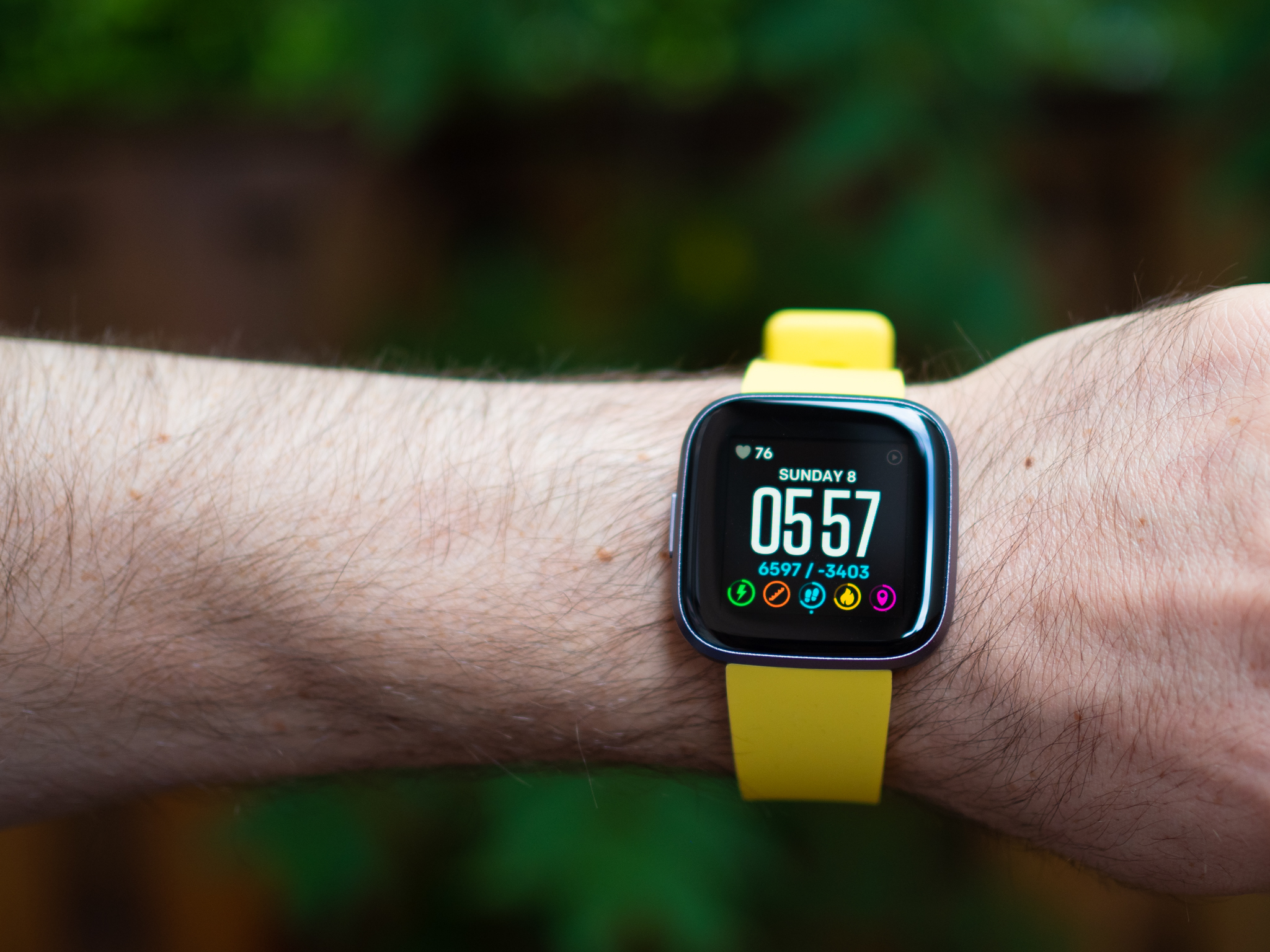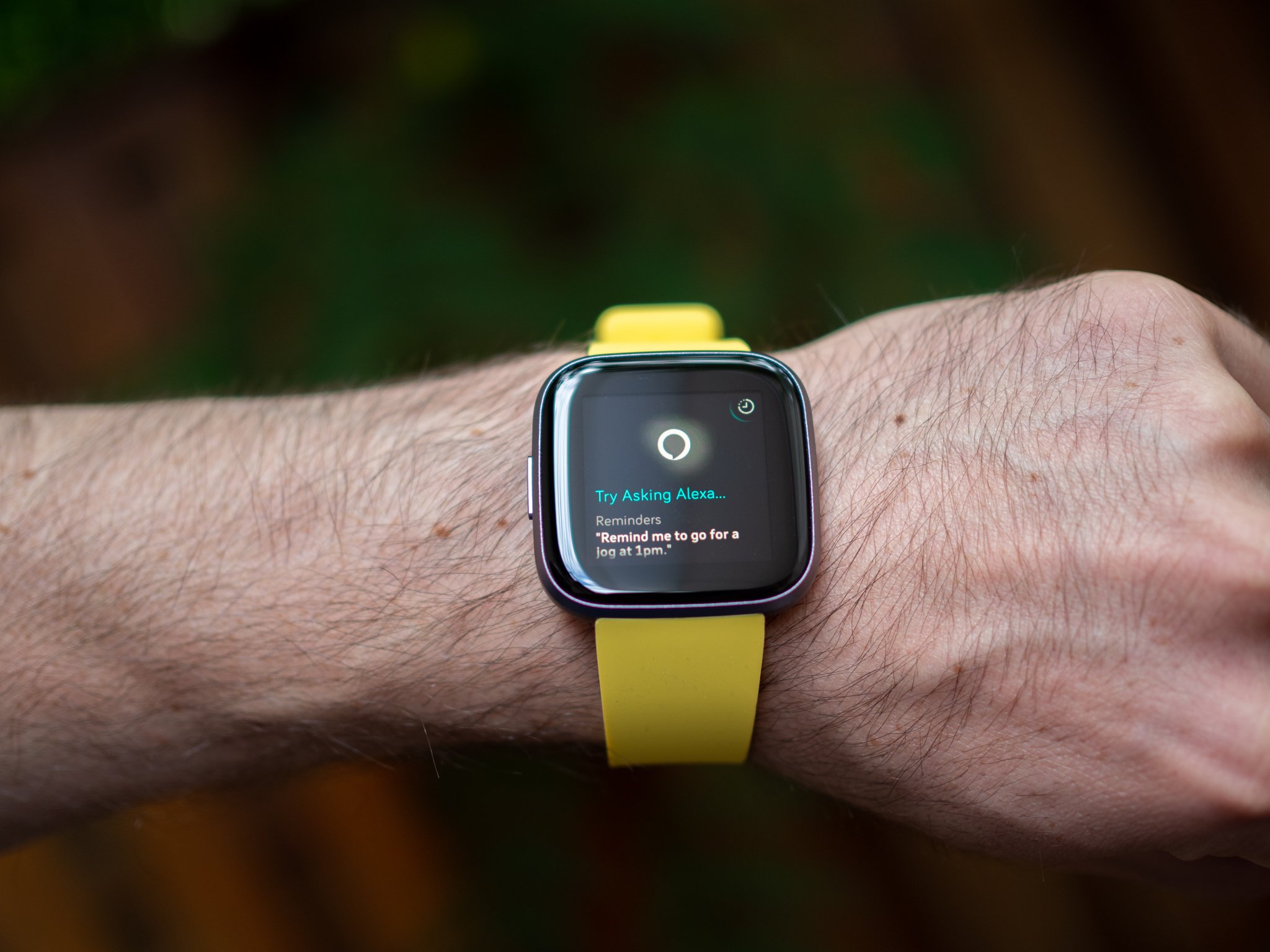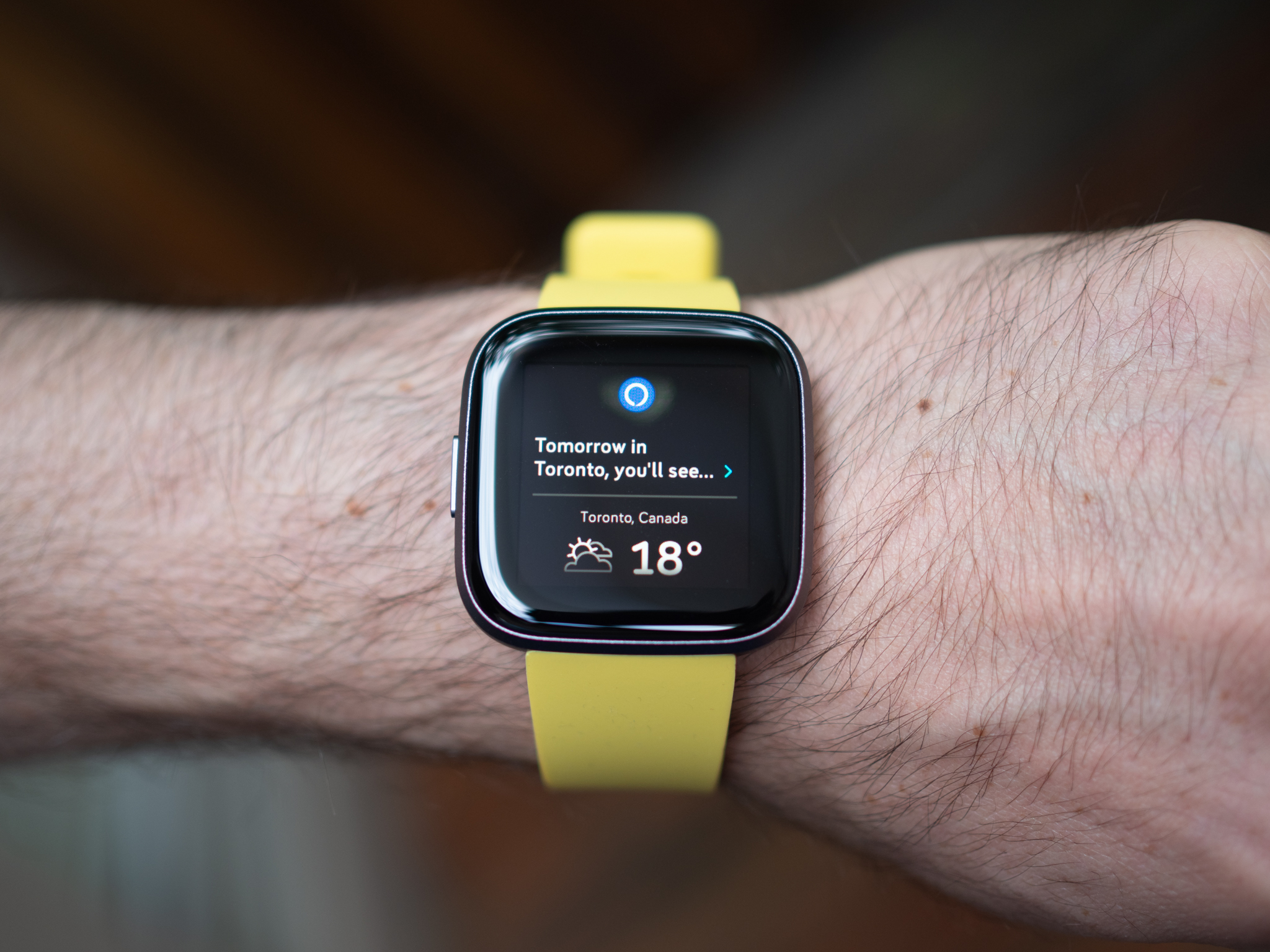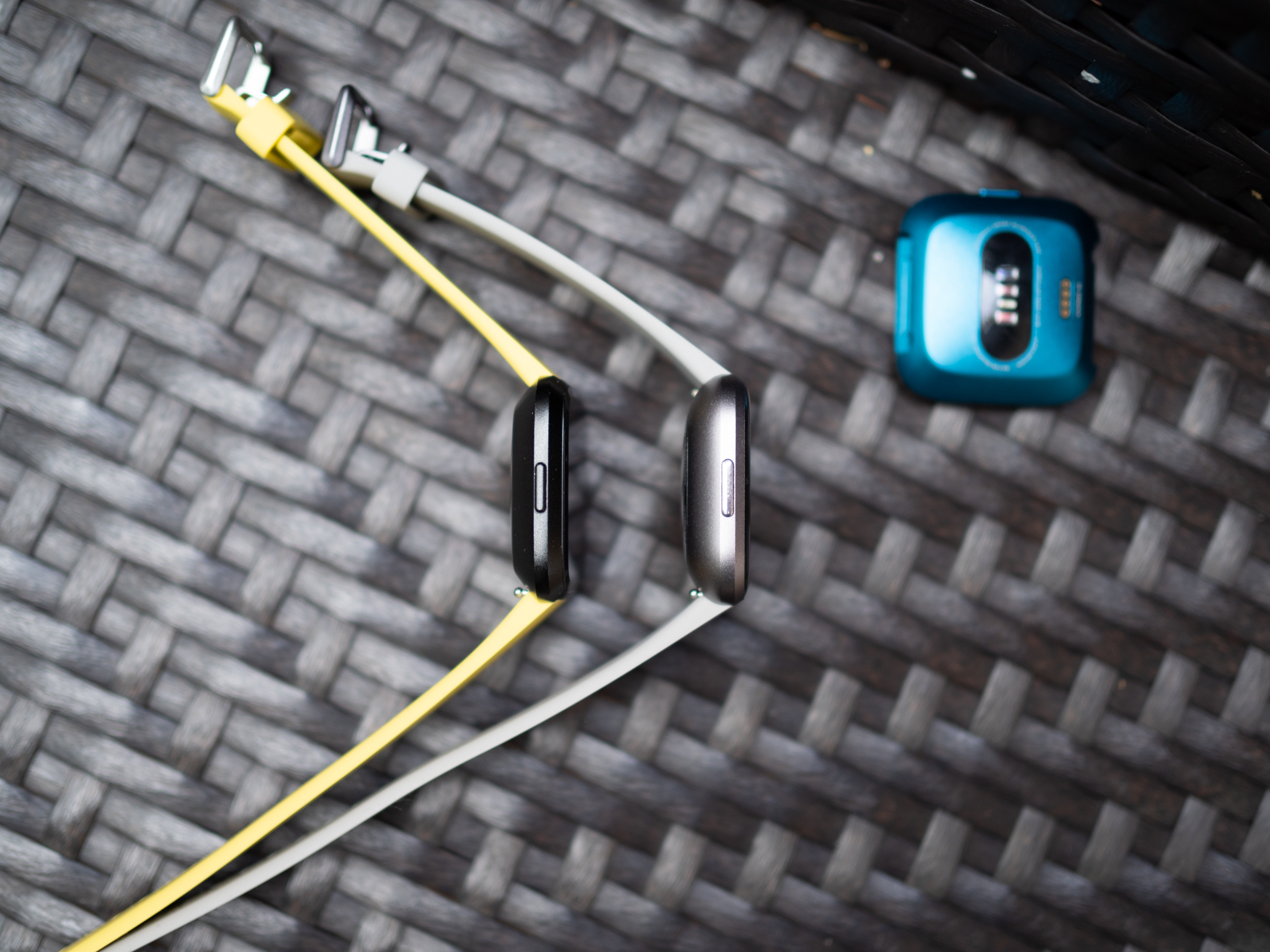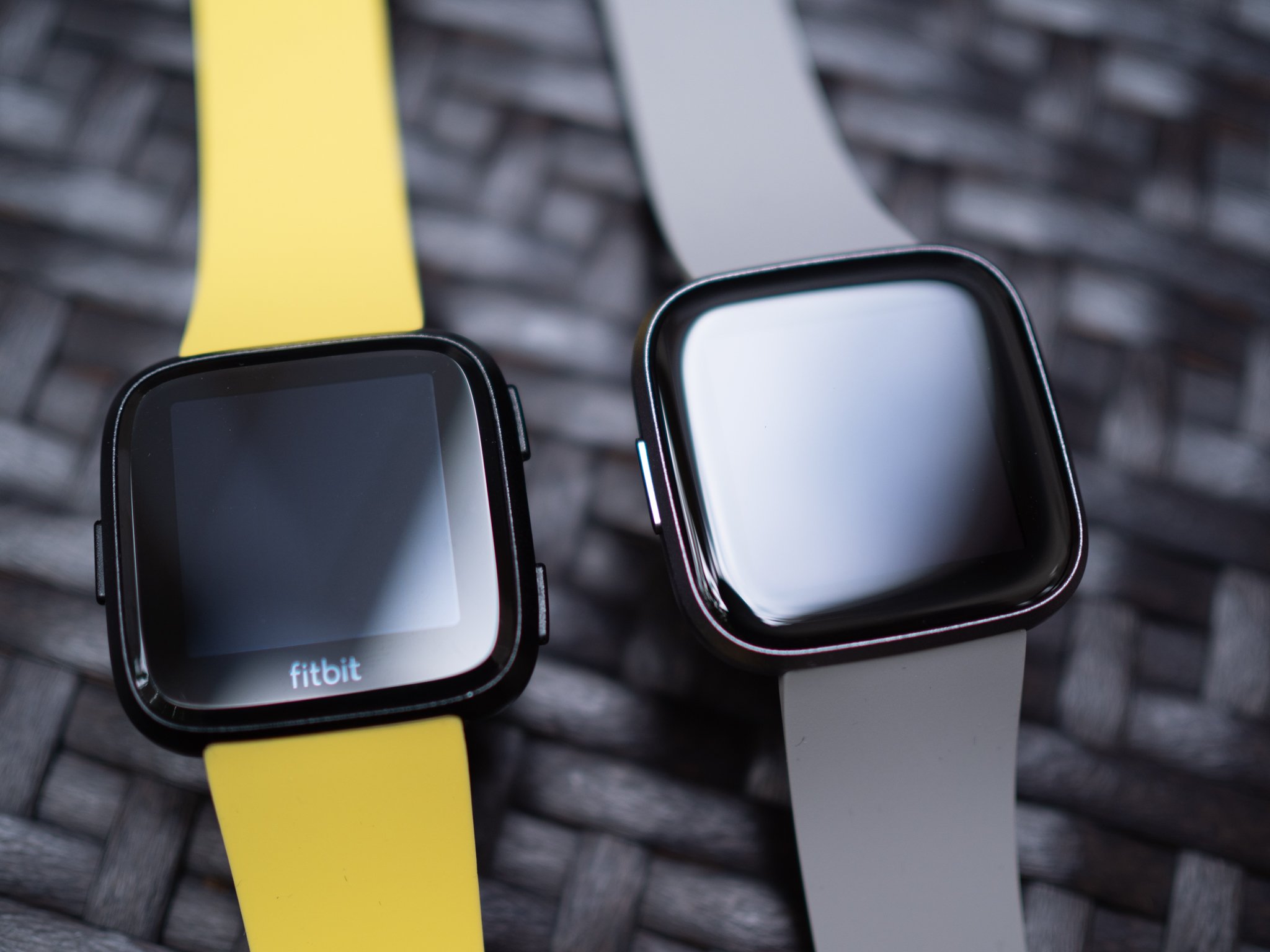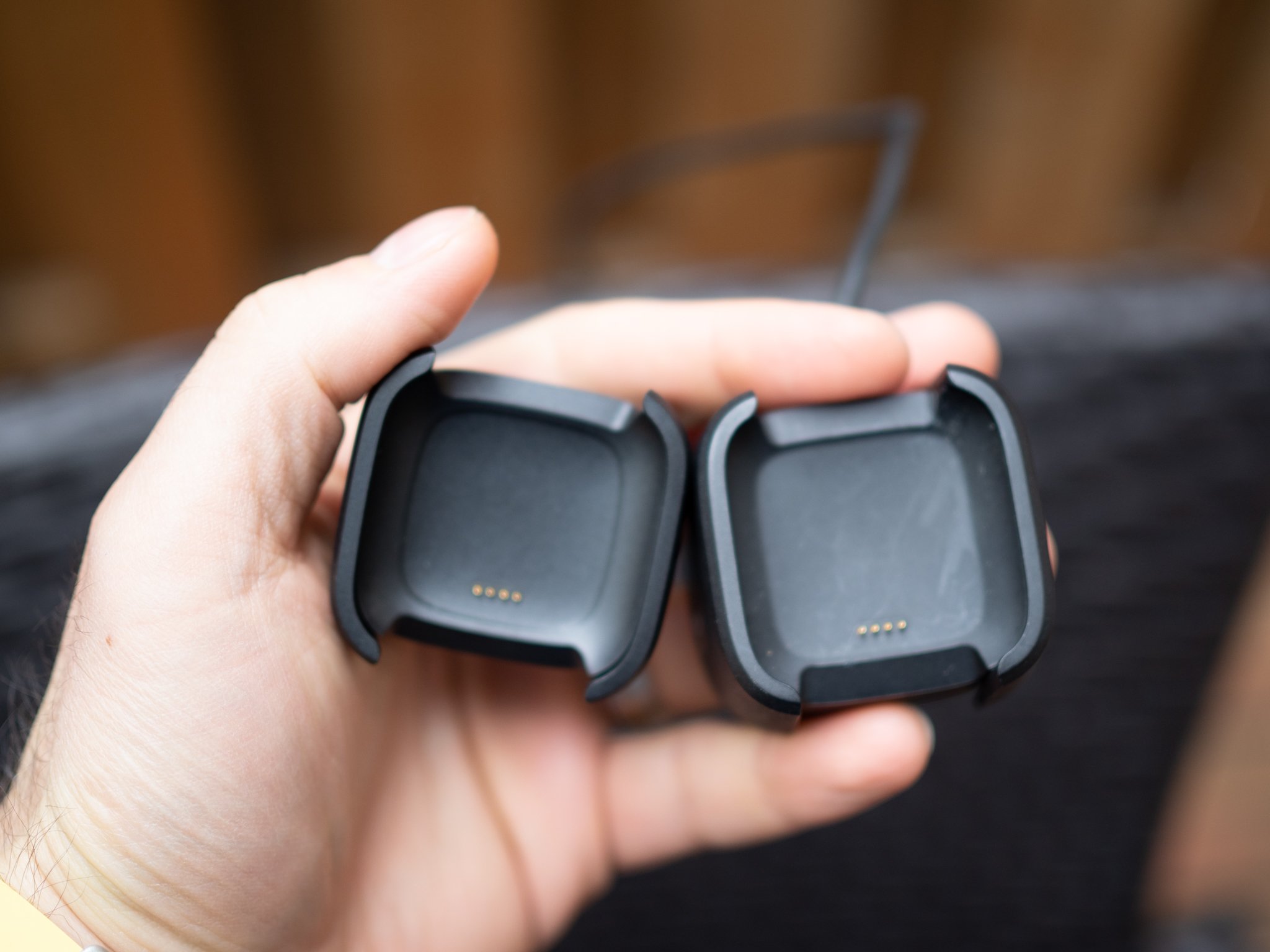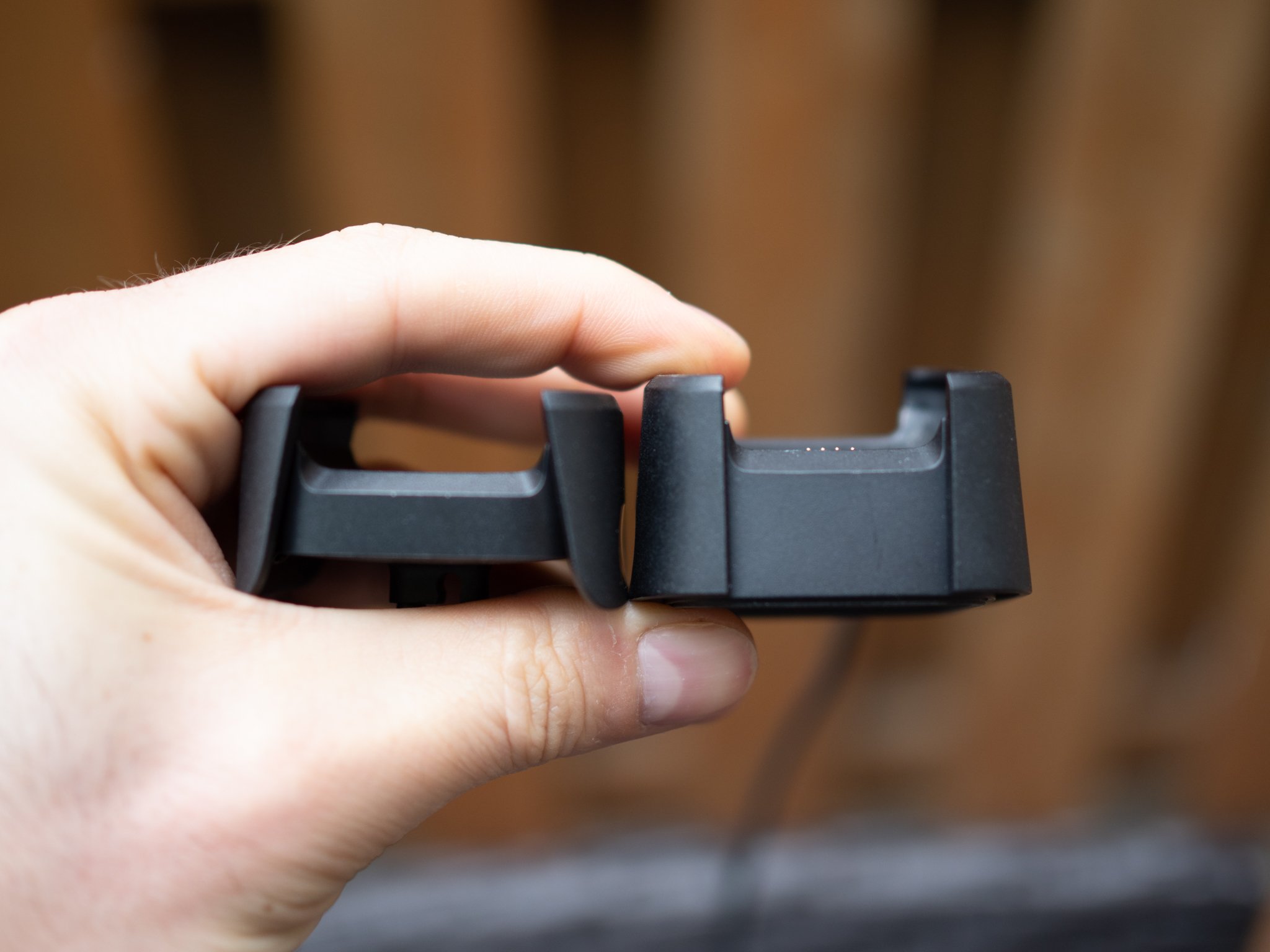The Fitbit brand is everywhere. If you wear an Apple Watch today, chances are you wore a Fitbit before it. And even if you've never worn a Fitbit you probably know what it is, having seen it on dozens or hundreds of other wrists. But a decade after the debut of the fitness tracker, a new Fitbit release feels just like much else in the mobile industry: cautiously iterative. The Versa 2 is a decent if underwhelming update to a platform that Fitbit has been building since 2016's Blaze, which dipped its toe into smartwatch features.
When the Versa debuted in 2018, its credentials seriously impressed me: Fitbit had finally built a smartwatch that carried itself confidently. Until the Versa 2 (and later the Versa Lite Edition), I wore the original most days because it did everything I needed relatively well, and it tracked sleep without needing to be charged daily. Its compromises were manageable.
The Versa 2 manages to improve on the Versa in some key ways, but not necessarily enough to give it an unqualified recommendation.
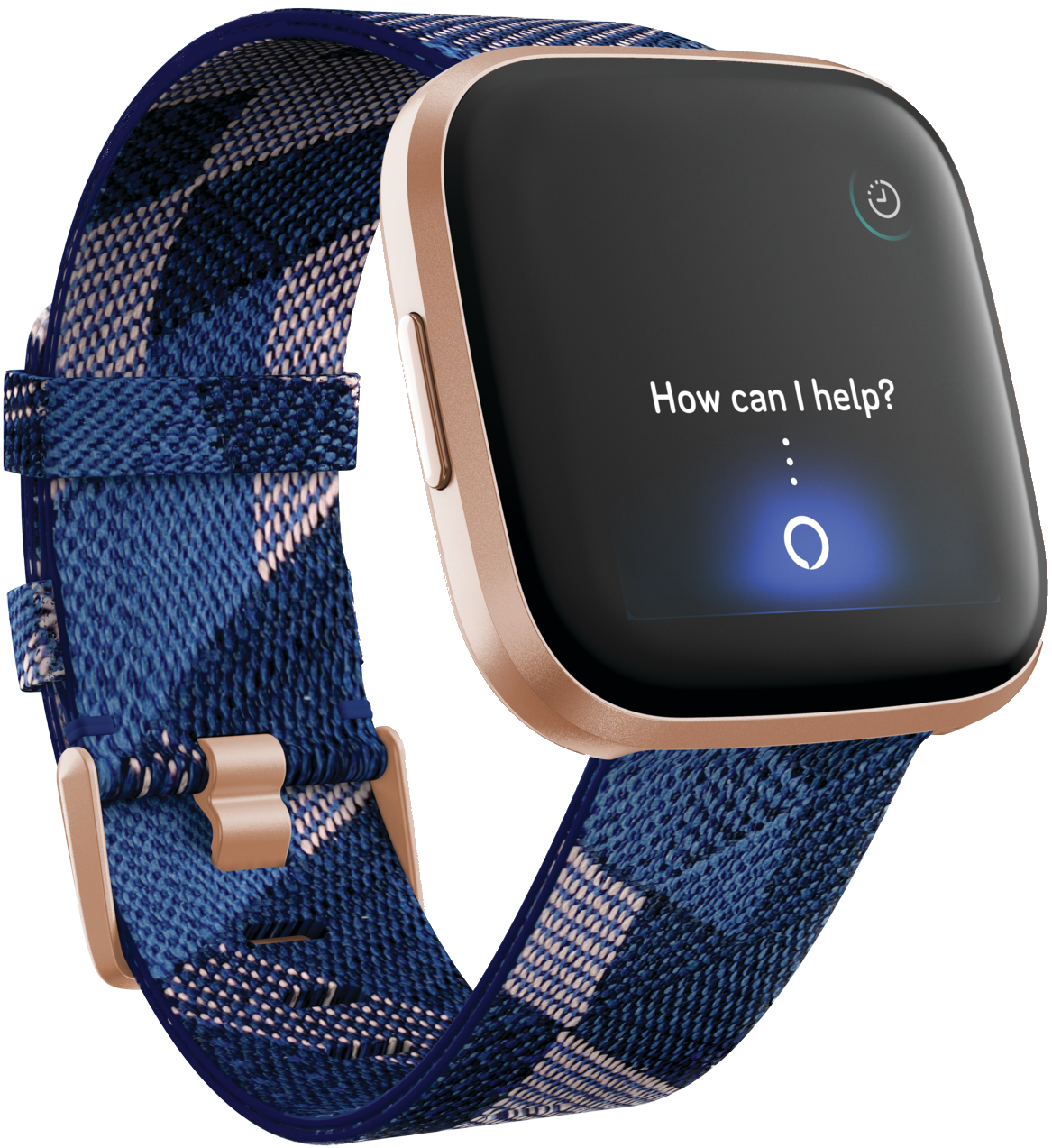
Plenty to like, plus a little ambivalence
With the Versa 2, Fitbit improved a number of things about its smartwatch platform but isn't able to overcome a fundamental inability to compete with Apple's watchOS ecosystem, especially on the eve of the Apple Watch's own sleep tracking additions.
Pros
- New AMOLED display is rich and bright enough to read in the sun
- Excellent battery life for a smartwatch
- Alexa is a truly useful addition to this software experience
- Sleep tracking metrics are better than ever, and fitness chops are still here
- NFC now comes with every Versa model, not just the Special Edition
Cons
- Lacks GPS
- Proprietary charger alienates former Versa owners
- FitbitOS still doesn't feel like a proper smartwatch OS
- Idle heart rate measurements are questionably accurate
Fitbit Versa 2 What I like
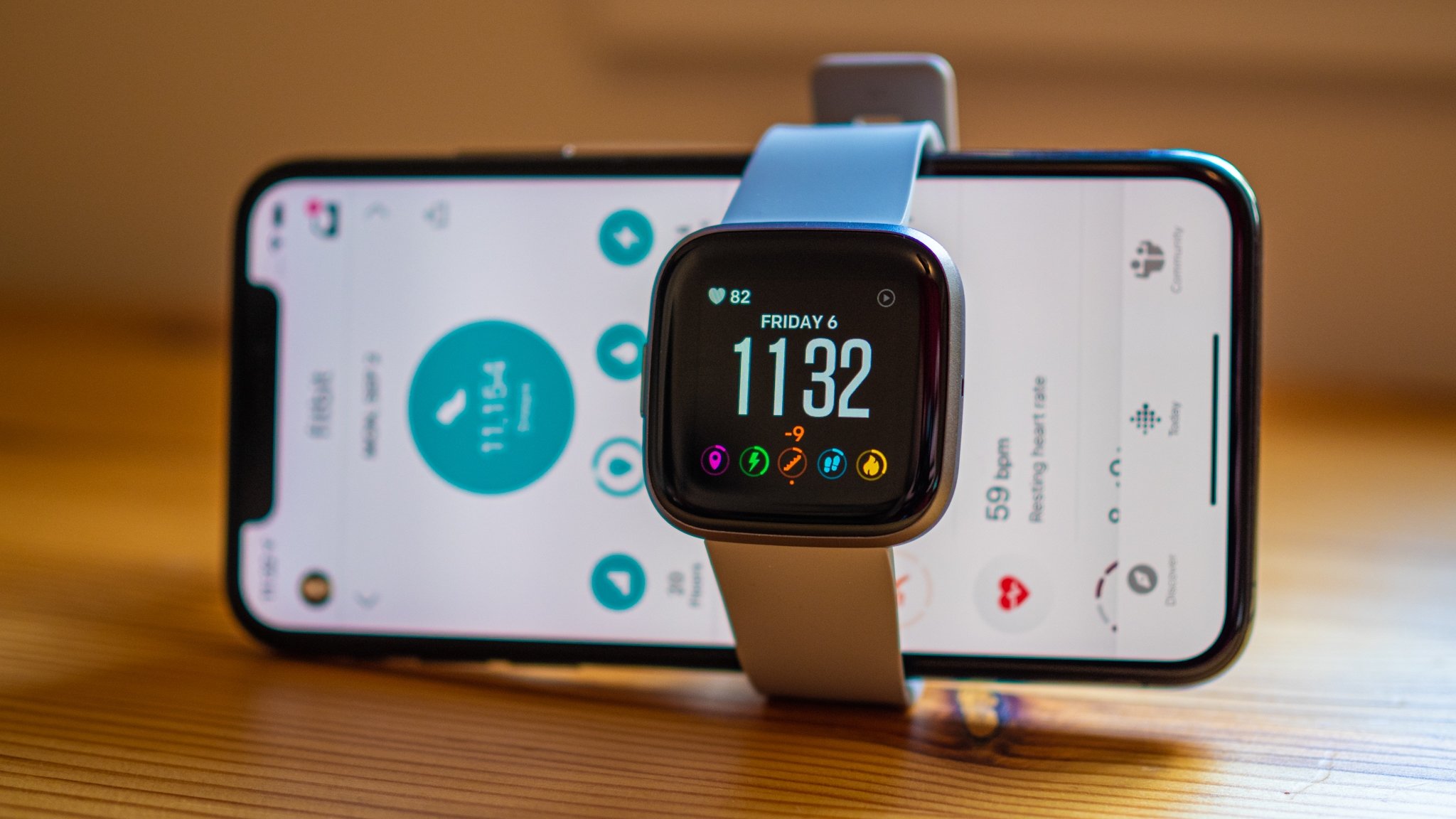
If the Apple Watch didn't exist, this review would probably go something like this: the Fitbit Versa 2 is the most versatile, low-profile, enjoyable wearable on the market for most iPhone users, and you should pick it up as soon as it goes on sale next week. I'd say how, for $199, there's so much to like here, including the five-day battery life, the recently-overhauled Fitbit app and growing list of attractive third-party watch faces.
It's hard to talk about the Versa 2 without comparing it, at least in part, to the Apple Watch, which it's competing against in the eyes of many iPhone users.
I'd say that, for most casual athletes, the Fitbit Versa 2's fitness and health tracking features are unparalleled and reliable, and that the broad social community makes it possible to feel challenged and empowered even with no one next to you. I'd say that the Versa 2 is an evolutionary but important step in the right direction for the franchise, bringing a better, simpler design, a microphone for tasking Alexa to answer questions, built-in NFC for mobile payments, improved performance, and an attractive OLED display that's relatively easy to read in broad daylight.
But in this world, in 2019, I can't say all that without a strict caveat. Tomorrow, Apple will launch the iPhone 11 and, alongside it, the Apple Watch Series 5. While it's expected to be an iterative update by Apple Watch standards — a "S" year, for all intents and purposes — there's one thing we're almost sure to see included: sleep tracking. Fitbit's growing lineup of smartwatches, which includes the Versa and Ionic products along with the slightly dumbed-down Charge fitness bands, have tracked sleep for years. They can do this because their battery life is measured in days, not hours, so an extra few measuring heart rate and motion while idling on the wrist as you sleep is practically computationally free.
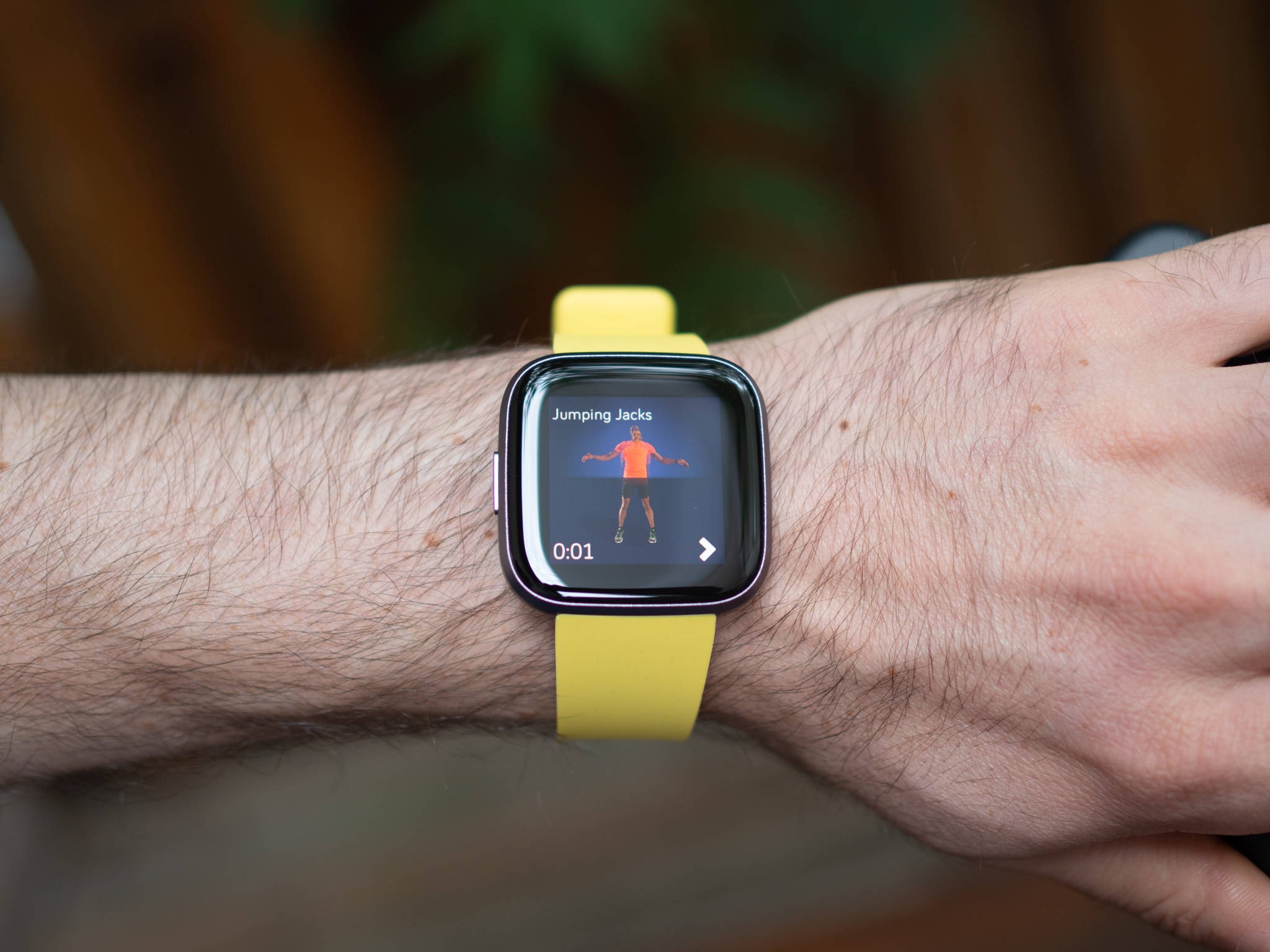
Still — I truly enjoy wearing a Fitbit, and that feeling hasn't abated with the Versa 2. The squircle design hasn't changed from the original, but Fitbit has simplified the input, dropping the number of buttons from three — two on the right and one on the left — to just the centered one on the left, pulling double duty with a press for back and a press-and-hold for Alexa or mobile payments.
iMore offers spot-on advice and guidance from our team of experts, with decades of Apple device experience to lean on. Learn more with iMore!
Centered on the right side is one of the new hardware additions, a microphone that facilitates the built-in Alexa functionality. Even though the Versa 2 can independently connect to Wi-Fi, Alexa routes through the smartphone it's connected to, and in my brief time connected to both an iPhone XS and a Galaxy Note 10, the feature worked pretty well.
Source: iMore
Of course, it's got the same limitations as the smartphone version you'll find in Amazon's own iPhone app, so while you can turn off the Hue lights in your living room, or set the thermostat to 72-degrees, or check tomorrow's weather or the score of last night's game, you can't actually perform actions on the watch itself, or affect the features of the phone. I would have liked, for instance, to start or end a workout on the watch or skip a song in the native Spotify player.
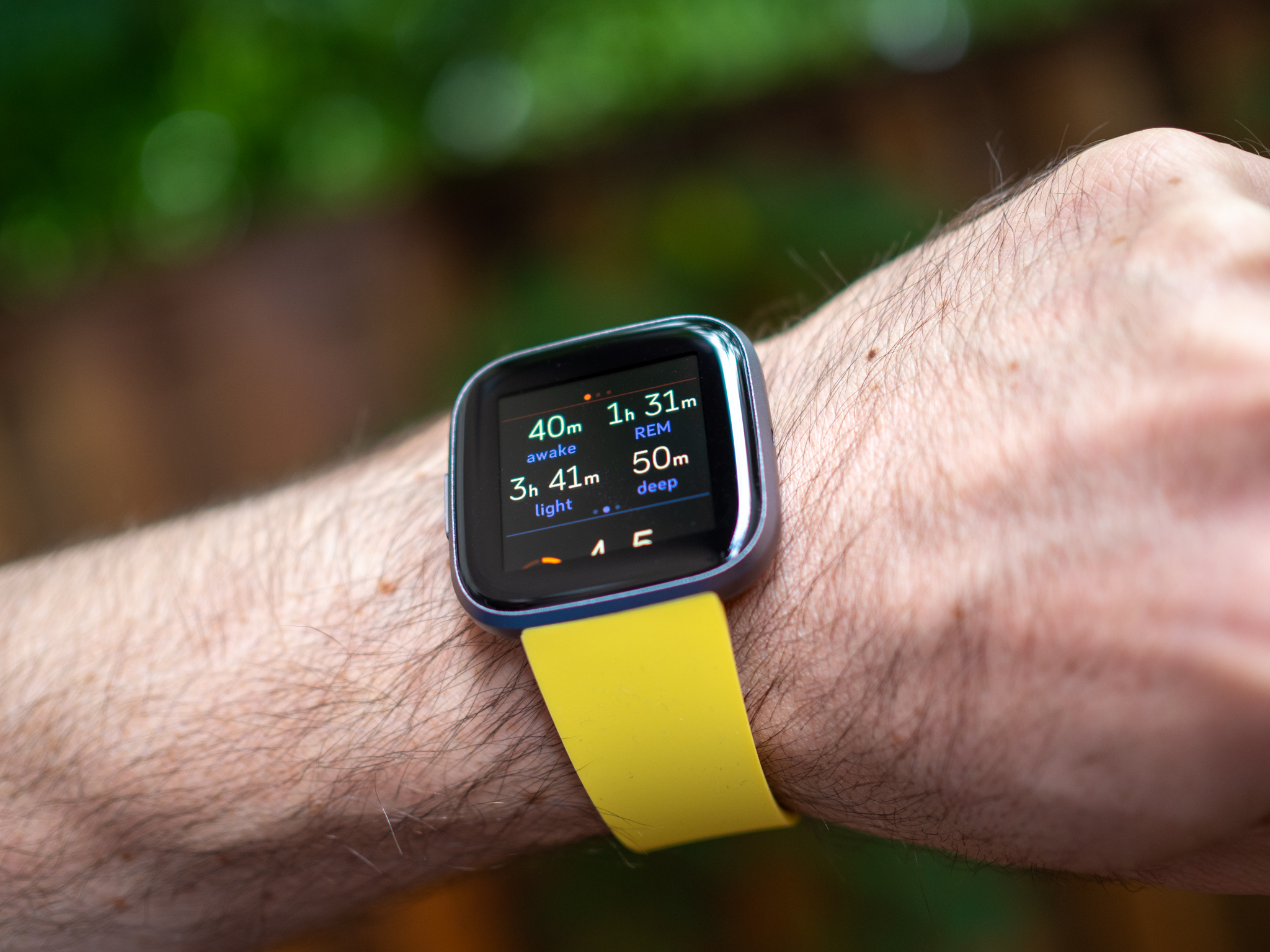
Thankfully, using FitbitOS is a heck of a lot more enjoyable on the Versa 2 than any previous Fitbit smartwatch, for two reasons: the new OLED display is rich and vivid, and because of the tech lacks a sleep-interrupting backlight. The screen is still too small (and the bezels too big) and the resolution too low, but neither really takes away from the overall experience. The second reason is even more pronounced: there's a new processor inside the Versa 2 that demonstrably enhances interaction smoothness. Scrolling between menus feels natural and real-time, and the frame rate is at least 50% faster than on the original.
The Versa 2 is a decent smartwatch but it's still much better at the fitness and sleep tracking stuff.
As with the Versa and other Fitbit smartwatches (and increasingly fitness trackers), the Versa 2 gets any and all notifications you want to pass on from your connected iPhone. But like those previous devices, too, iPhone users can't do anything with them; only Android users have the ability to respond to texts through a set of quick replies, emojis or, new with the microphone-equipped Versa 2, voice.
Blame Apple's restrictive APIs if you want, but the notification experience on the Versa 2 feels more like triage than triumph, and anyone coming from an Apple Watch will wonder where all their flexibility went. Still, even on an Apple Watch, I tend to use incoming notifications as a deciding factor on whether to take out my phone to respond, and I can't fault Fitbit too much in this regard. (My colleague, Joe Maring, used the Versa 2 connected to an Android device, and you can read about that experience over at Android Central.)
Of course, the Fitbit ecosystem is about fitness and health tracking, and to that end, the Versa 2 continues the company's legacy of an accessible generator of metrics. I can't go further without mentioning the Versa 2 arrives alongside Fitbit Premium, a new $10/month or $80/year service that purports to suck up all the data generated by your tracker and produce a set of quantitative, actionable goals to improve health, from exercise programs to sleep guidance to building a community of likeminded people. The $230 Versa 2 Special Edition comes with three months of Fitbit Premium along with a limited-edition mesh nylon watchband.
Even without Fitbit Premium, the Versa 2 is still a consummate fitness tracker. Though it lacks built-in GPS, it supports 24/7 heart rate tracking, automatic workout detection, on-device exercise program guidance, and the best sleep tracking features in the business. Plus, it's waterproof.

New to the Versa 2 (and coming to other trackers with heart rate sensors in a future update) is a Sleep Score, a consolidation of every metric the tracker captures overnight into a number out of 100. I've always appreciated Fitbit's fastidious breakdown of my sleep stages, but seeing a number, even one lower than I'd like, is a truly useful addition to the Fitbit app experience (it's not yet available on the watch itself).
FitbitOS is better and smoother than it was, but it still doesn't feel much like a fully-featured smartwatch operating system, and I'm starting to get the feeling it never will.
The Versa 2 also lasts about a day longer than the Versa, though I honestly didn't notice much of a difference — I try to get in the habit of charging my Fitbits every four days to avoid any range anxiety, though that in itself is a pretty remarkable feat for a wearable of this fidelity. If you don't mind charging more often, the Versa 2 also has an always-on mode, something that I'd love to see on the Apple Watch (and what I've always appreciated about Google's otherwise-frustrating Wear OS platform). There's no way to customize the watch face you see when the AOD is enabled — it's always just an ugly digital face — but the addition does feel like Fitbit is fulfilling a promise to Pebble fans who came over to the platform after the acquisition.
To that end, the Fitbit app and watch face store, while continuing to grow, still has a paucity of great options. The one I settled on (seen in my photos here) is by supeerb, who's built quite a little business creating attractive, functional faces for the Versa. It's clear there's not much of a marketplace for watch faces or third-party apps just yet, which is disappointing given how long the store has been around, but the few that I use on a regular basis — mostly built by Fitbit itself — are fine for what they do.
Fitbit Versa 2 What I don't like
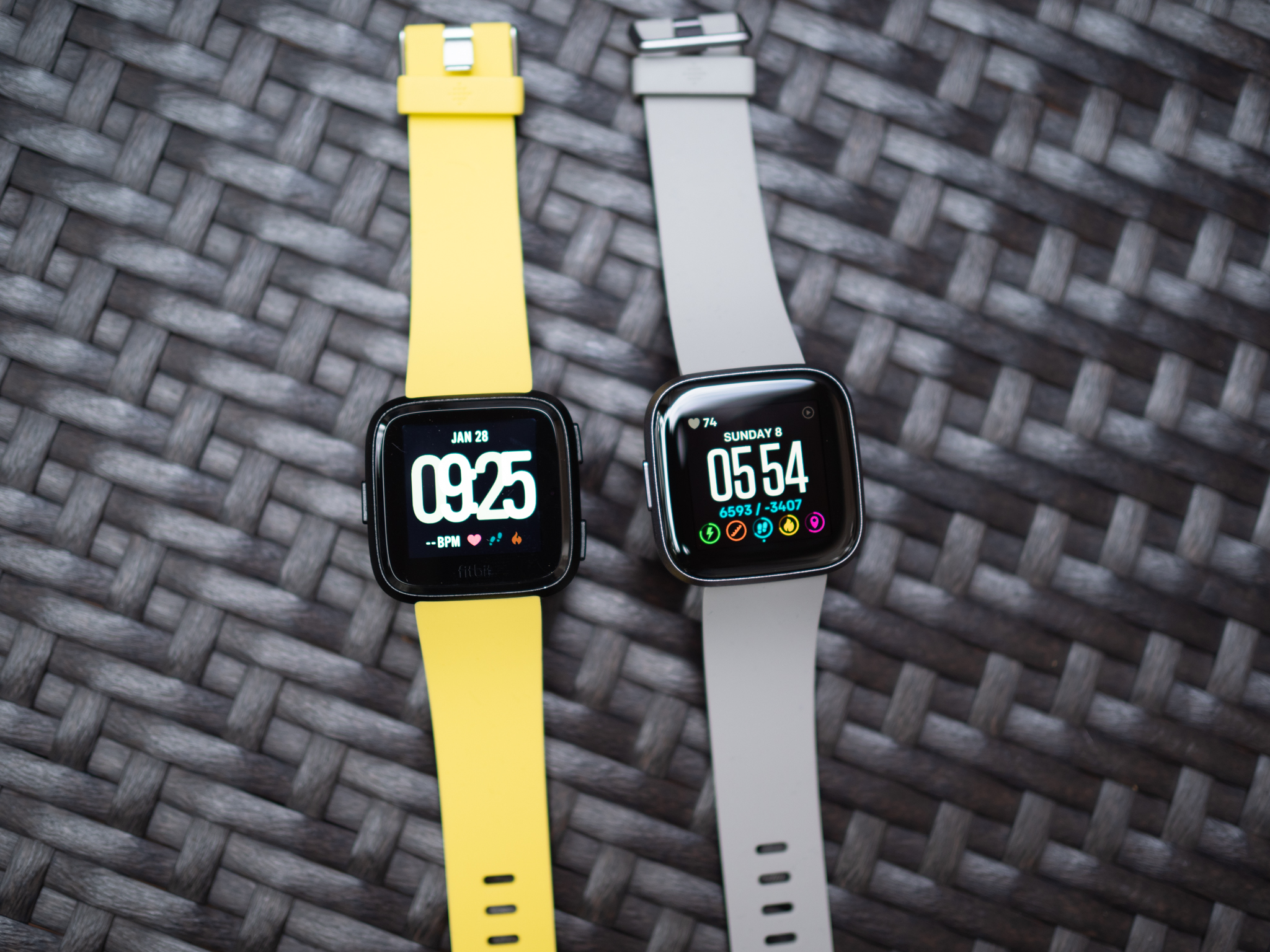
I'm not mad; I'm just disappointed. That was my initial impression coming out of the briefing where I saw the Versa 2 for the first time. I was far more interested in the nascent Fitbit Premium service than the piece of hardware on my wrist; it's been eighteen months and the best you could do was improve the processor, add a microphone, stick Alexa inside, and remove the company logo from the face? It all seems a bit inconsequential.
Source: iMore
But that's not really my issue with the Versa 2 — neither is it the lack of on-board GPS, which absolutely is a problem and should be included here, especially given how many other ~$200 options have it built in. My main issue is that, two years after its debut, FitbitOS just doesn't feel like a smartwatch operating system capable of scaling with the company's plans. There's still so much you can't do on the Versa 2 itself — you can't change watch faces or install apps, and you can't see detailed performance metrics. I worry that, with the addition of Fitbit Premium, the company's smartwatches will buck the industry trend and start relying even more on the smartphone app.
My remaining gripes are small but speak to some of Fitbit's strange decisions that have filtered through its products over the years. For starters, I've found idle heart rate to be wildly inaccurate, at least on the watch's live counter. I'm often told that my heart rate is over 100 while casually walking down the street or even sitting at my desk. It's not. It doesn't happen a lot, but it's often enough that I have to consider it a pretty significant flaw (and yes, I'm wearing the watch properly).
Source: iMore
The other quibble is with the charger; while it's lower-profile than the claw from the original Versa, it still vexes me that the company insists on altering the charger design with every iteration of fitness tracker or smartwatch, rendering the previous ones obsolete. If you bought an Apple Watch in 2015, you can still use that same cable to charge a brand new model (though it's possible that will change in the future).
Perhaps more importantly, though, the Versa's bands are cross-generation compatible, which means all those funky bands you bought still work. Too bad, though, that the quick-release mechanism is so damn finicky. Fitbit's lug design was one of the worst aspects of owning a Versa and that frustration continues into 2019 and beyond.
Should you buy the Fitbit Versa 2?
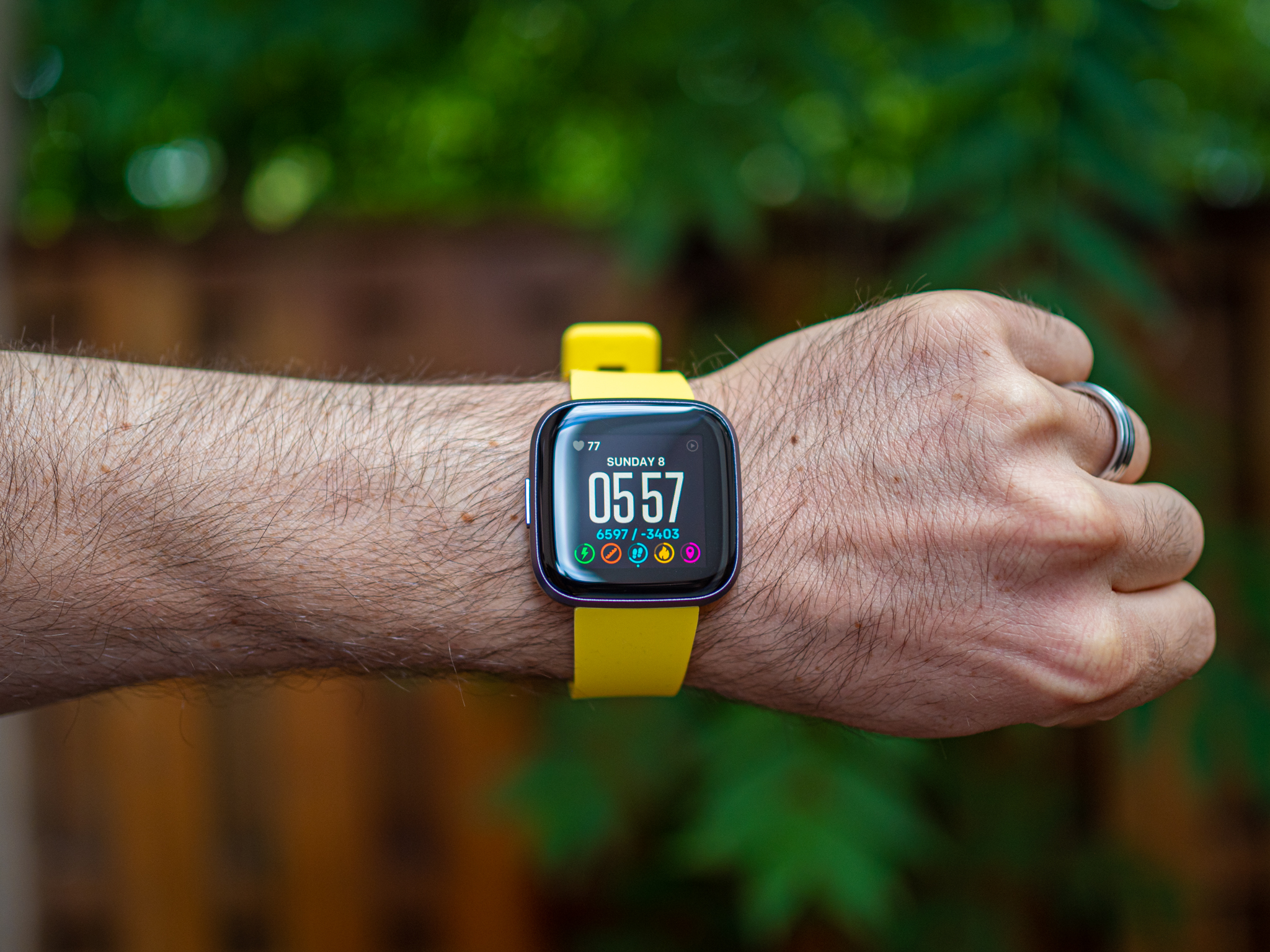
The Versa 2 is a decent, if underwhelming, update to a very important product for Fitbit. It's undoubtedly going to be extremely popular this holiday season given its $200 price tag and is a natural upgrade for existing Fitbit owners moving from a tracker to a smartwatch.
If you already own a Versa or Versa Lite, I'd stay put: there isn't enough here to warrant a day-one upgrade. If you have an old Charge or Alta and are looking to make the leap to something a bit more capable, the Versa 2 is a great bet, though the $160 Versa Lite Edition may prove a better option.
Instead of jumping on new hardware this year, consider spending that money on a Fitbit Premium subscription — at least for a few months. Most Fitbit owners I know tell me that, after the initial fascination wears off of counting steps, workouts, and sleep, they're not really sure where to go next. I think Fitbit Premium is the right response to that, and an effective way for the company to hedge again the increasing commoditization of the wearables market.

Plenty to like, plus a little ambivalence
With the Versa 2, Fitbit improved a number of things about its smartwatch platform but isn't able to overcome a fundamental inability to compete with Apple's watchOS ecosystem, especially on the eve of the Apple Watch's own sleep tracking additions.
Daniel Bader is a Senior Editor at iMore, offering his Canadian analysis on Apple and its awesome products. In addition to writing and producing, Daniel regularly appears on Canadian networks CBC and CTV as a technology analyst.
